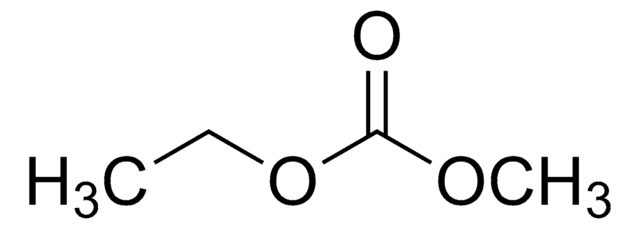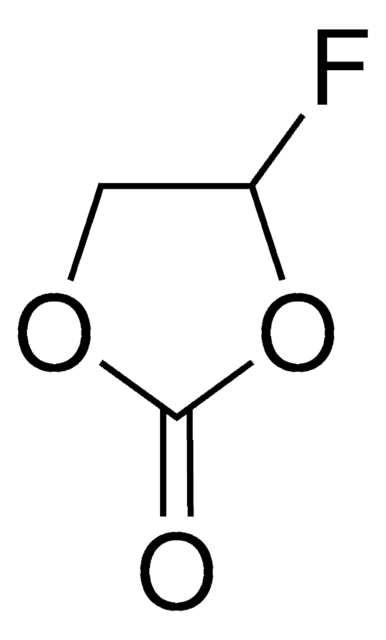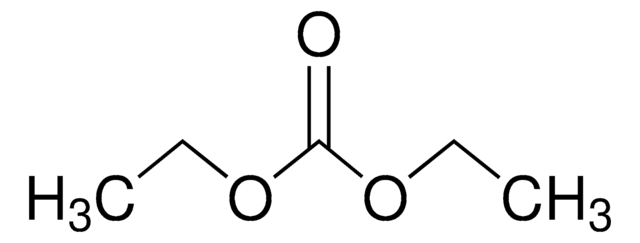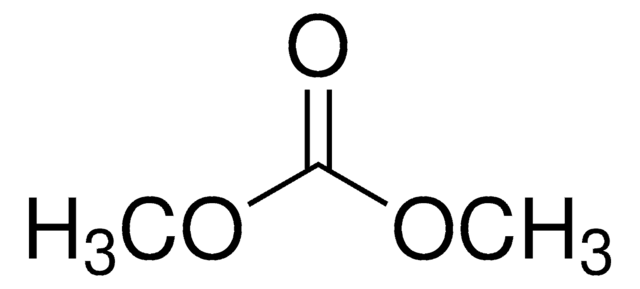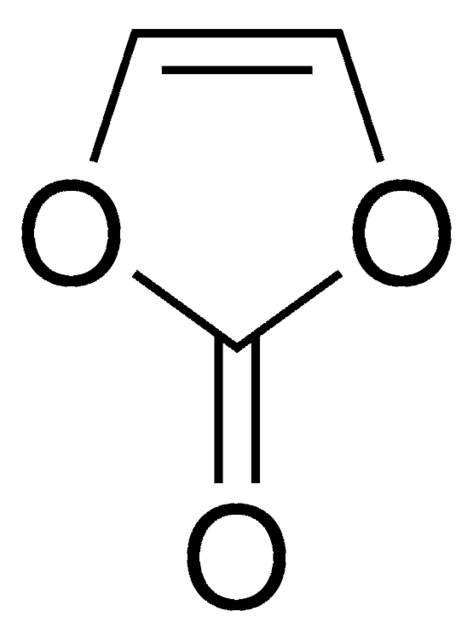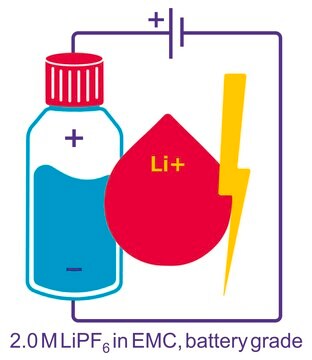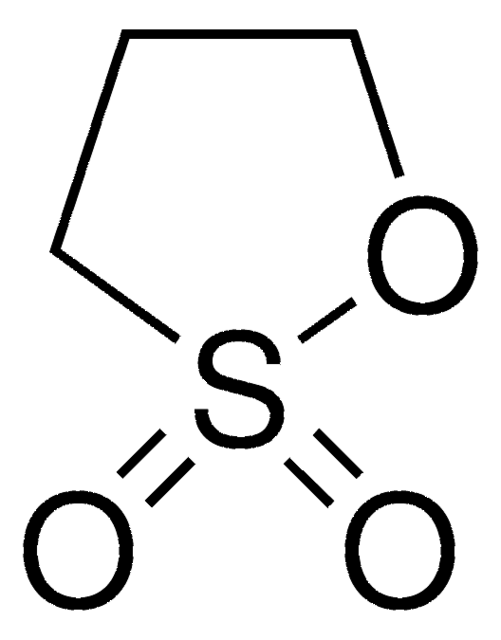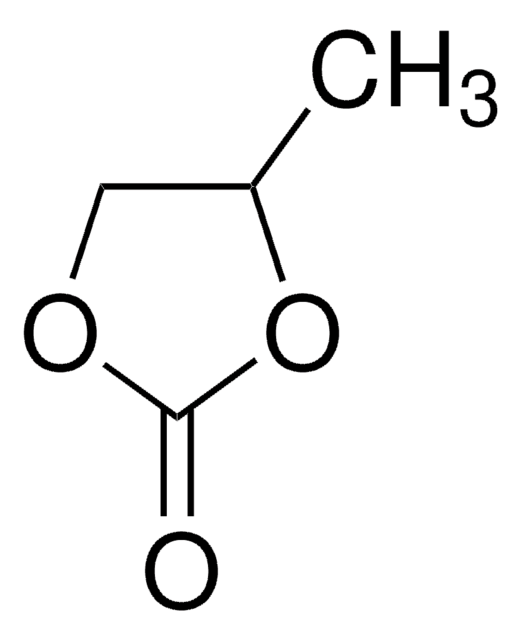809934
Ethyl methyl carbonate
battery grade, 99.9%, acid <10 ppm, H2O <10ppm
Synonym(s):
Carbonic acid ethyl methyl ester, EMC, Methyl ethyl carbonate
About This Item
Recommended Products
grade
battery grade
Quality Level
description
Acid content: <10 ppm
Assay
99.9%
form
liquid
moisture
<10 ppm
impurities
≤10 ppm H2O
≤10 ppm acid
bp
101 °C
mp
-55 °C
density
1.01 g/cm3
application(s)
battery manufacturing
SMILES string
CCOC(=O)OC
InChI
1S/C4H8O3/c1-3-7-4(5)6-2/h3H2,1-2H3
InChI key
JBTWLSYIZRCDFO-UHFFFAOYSA-N
Looking for similar products? Visit Product Comparison Guide
General description
Application
Legal Information
related product
Signal Word
Danger
Hazard Statements
Precautionary Statements
Hazard Classifications
Flam. Liq. 2
Storage Class Code
3 - Flammable liquids
WGK
WGK 1
Flash Point(F)
71.6 °F
Flash Point(C)
22 °C
Choose from one of the most recent versions:
Already Own This Product?
Find documentation for the products that you have recently purchased in the Document Library.
Customers Also Viewed
Articles
Dr. Schmuch, Dr. Siozios, Professor Dr. Winter, and Dr. Placke review the challenges and opportunities of nickelrich layered oxide cathode materials. They discuss production processes for the layered oxide cathode materials as well as their chemistry and morphology.
Due to the adverse impact of the continued use of fossil fuels on the earth’s environment and climate, researchers have been asked to develop new approaches for producing power using renewable sources like wind and solar energy
Here, we present a short review of ionic liquid electrolytes used in state-of-the-art rechargeable batteries including high performance and low-cost aluminum batteries, non-flammable Li-based batteries, and high-cycling and stable dual-graphite batteries. We also outline the key issues explored so as to identify the future direction of IL development.
Our team of scientists has experience in all areas of research including Life Science, Material Science, Chemical Synthesis, Chromatography, Analytical and many others.
Contact Technical Service